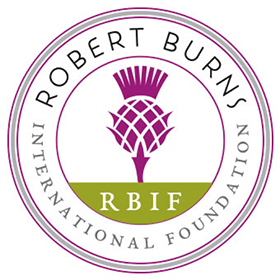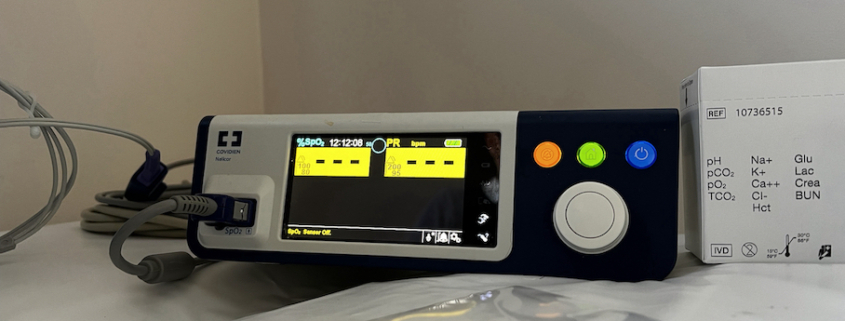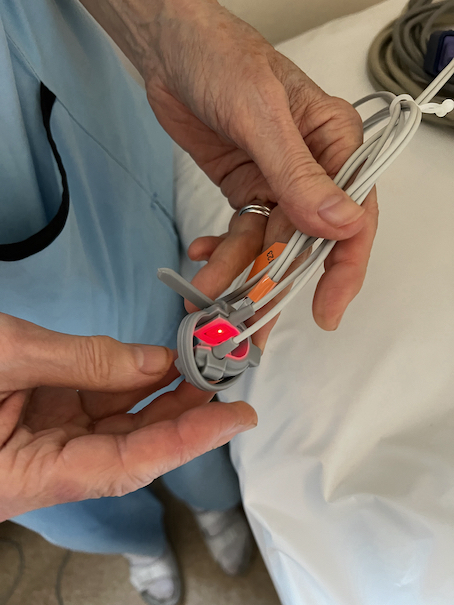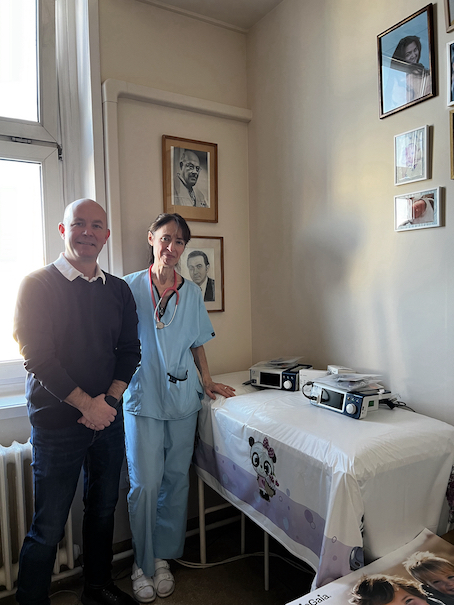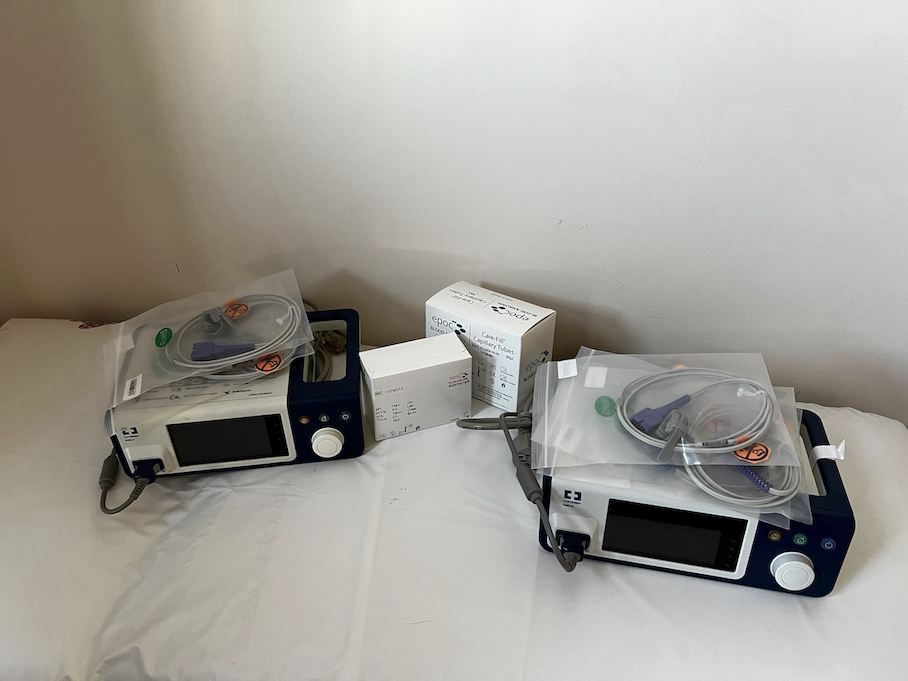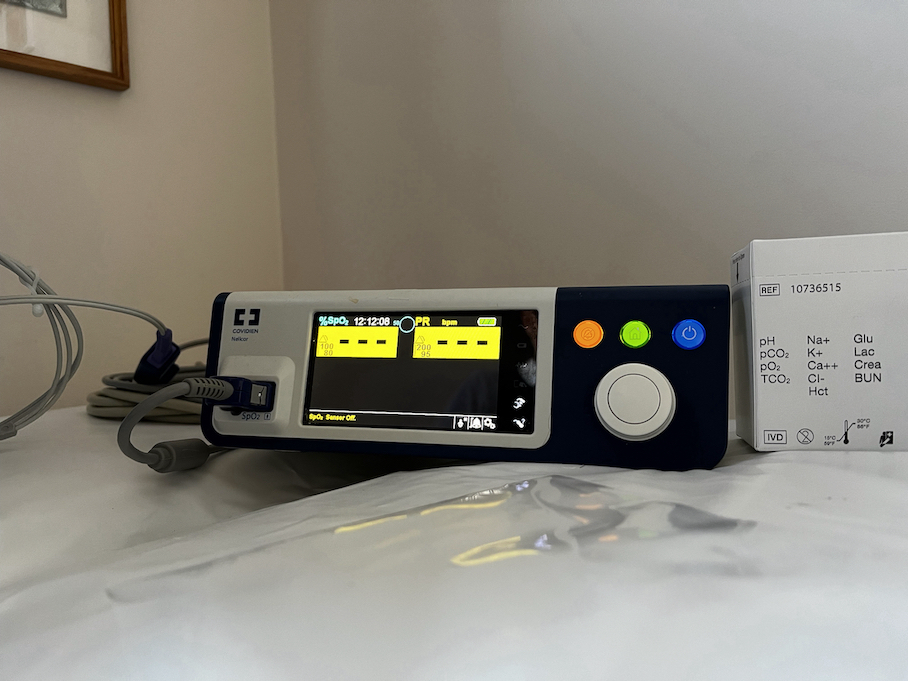Key ventilation equipment for Péterfy Sándor Utca Hospital
The Neonatal Intensive Care Unit of the Péterfy Sándor Street Hospital – Outpatient Clinic in Budapest is one of the largest level-2 neonatal intensive care units in the country.
The neonatal wing can deal with anything between 500 and 600 premature babies every year with a maximum capacity to accommodate 20 to 30 babies at any one time.
Since 2014, the Robert Burns International Foundation has been supporting this unit with regular donations of high value to help the doctors and nurses provide a better and safer level of care for the many young patients, greatly facilitating their day-to-day work.
“In recent years, the Foundation’s donations of state-of-the-art incubators, patient monitors, testing equipment and breastfeeding equipment have greatly helped our work”, revealed Dr Gábor Boross, Head of Department.
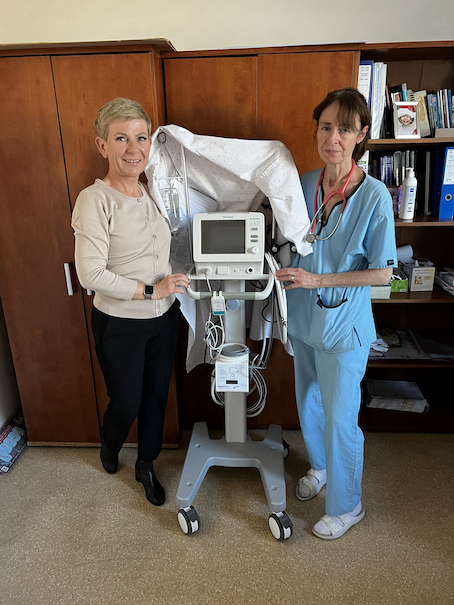
In 2023, the Robert Burns International Foundation donated more than HUF 5 million to invest in non-invasive respiratory support for newborns and premature infants and the additional equipment needed for operating this equipment (respiratory monitors, humidifiers). The WILAflow Elite is a microprocessor-controlled, non-invasive ventilator for the smallest and most fragile patients with a variety of advanced non-invasive ventilation modes – including apnea wake-up and automatic leak compensation. It uses electronic air/oxygen mixing technology that allows highly accurate adjustment of the required oxygen concentration at the touch of a button and automatically proportions the oxygen and air supply. The intelligent flow sensor and proportional valve allow real-time analysis of the selected ventilation parameters and oxygen concentration. The WILAflow Elite consistently delivers precise O2 concentrations at positive pressure, which improves spontaneous breathing.
The Nellcor bedside SpO2 patient monitoring system incorporates the latest Nellcor digital signal processing technology for accurate, reliable readings even during low perfusion and other forms of signal interference, providing clinicians with access to the most critical information regarding their patients’ respiratory status, giving them the information they need to detect respiratory complications earlier and intervene sooner.
“This equipment will enable us to provide state-of-the-art, safe and effective respiratory support for premature and newborn babies with respiratory distress, treatment that avoids complications wherever possible. On behalf of our patients, my colleagues and myself, we would like to thank the Robert Burns International Foundation for their generous and valuable donation.
